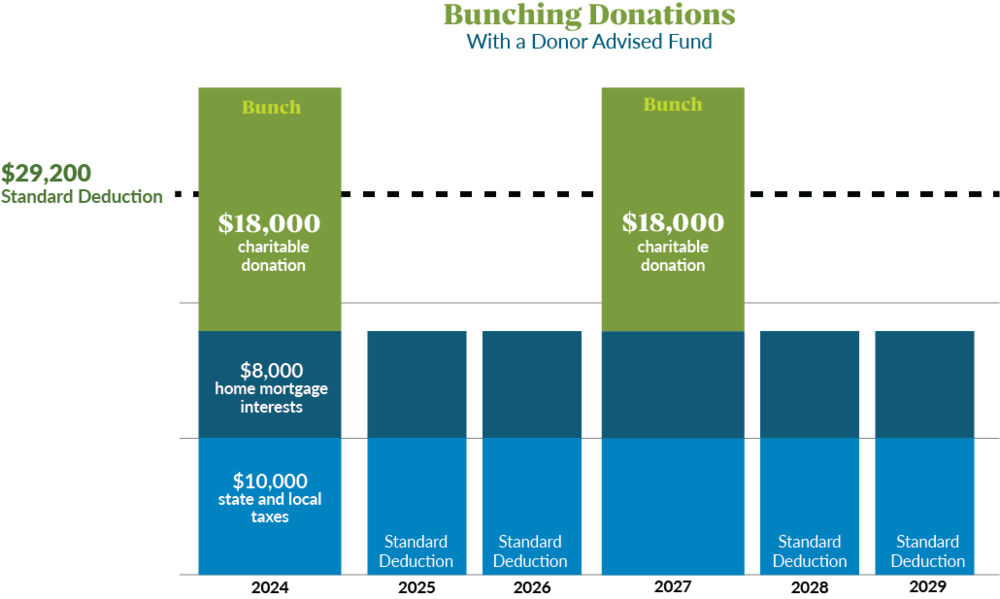Estate Tax Planning: What's Your Next Move?
As attorneys, CPAs, and financial advisors, you’re very aware of potentially significant upcoming changes to the tax laws that could impact your high net-worth clients. Whether or not a post-election Congress takes action to prevent the estate tax exemption sunset at the end of 2025 will potentially affect the way you design your clients’ wealth transfer strategies.
During this phase of uncertainty, it may be useful to reflect on historical estate tax changes to see how similar situations have been resolved in the past, while at the same time taking a practical approach and advising clients that, while commentators may speculate, it is still impossible to accurately predict what might happen. Estate taxes certainly will continue to be on the minds of leaders in the charitable sector for many months to come.
As you and other tax planning professionals watch and wait, it is important to keep charitable planning high on your list of strategies that could help blunt the impact of a lower estate tax exemption if the sunset were to occur. That’s because gifts to charities are deductible from a client’s taxable estate. Even during this era of uncertainty, be sure to keep in mind an important planning technique for your charitably-inclined clients that delivers multiple tax benefits and offers some degree of flexibility: Naming a charity, such as a fund at the community foundation, as the beneficiary of an IRA or other qualified retirement plan.
Here’s why this is such a powerful technique, especially now:
Income tax savings. When your client designates a fund at the community foundation as the beneficiary of an IRA, the fund receives the assets without having to pay income taxes. This is because charities are tax-exempt entities, allowing them to receive funds from qualified retirement accounts tax-free after your client’s death. This is not the case with qualified retirement plans flowing to heirs; the income tax hit can be significant.
Estate tax deduction: Naming a charity as a beneficiary of a retirement plan results in an estate tax charitable deduction, which reduces any applicable federal estate taxes. This means that the full value of the IRA can flow into your client’s fund at the community foundation free from the estate tax burden.
Flexibility. Clients can revise IRA beneficiary designations anytime during their lifetimes. So, as the end of 2025 draws closer, a client can update an IRA beneficiary designation to name a fund at the community foundation, which would protect against a drop in the estate tax exemption. If the sunset does not occur, the client could of course revise the beneficiary designation to leave a greater portion of retirement plan assets to heirs. Remember, though, that the income tax hit will still apply to proceeds flowing to heirs. That’s why many of your charitable clients will choose to leave IRAs to their funds at the community foundation even if the estate tax exemption does not sunset. And, of course, many clients truly want to leave a legacy and would love to incorporate charitable giving into their estate plans regardless of what happens with the tax laws. As tax and estate planning advisor, it is your responsibility–and opportunity–to help clients achieve their philanthropic wishes.
Please reach out to the team at the Community Foundation to dive deeper into the ways you can help your clients fulfill their charitable goals, especially during this time when future tax laws are up in the air. We are here to help!

